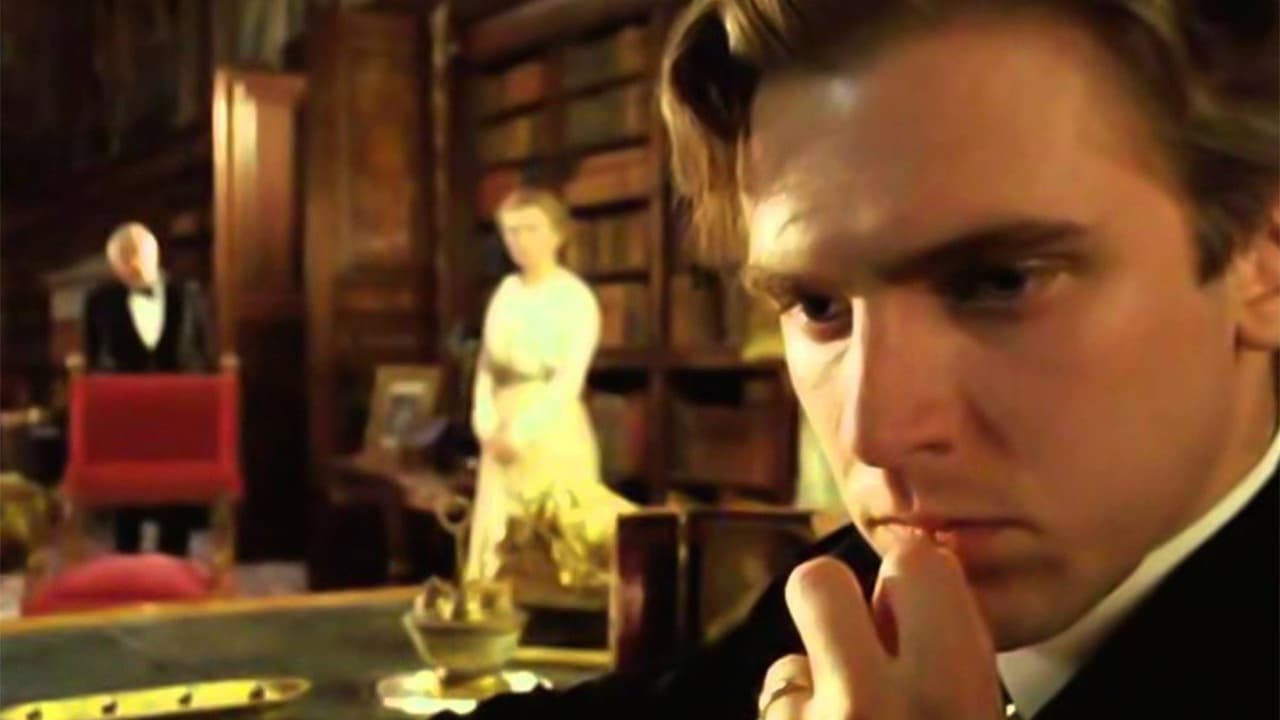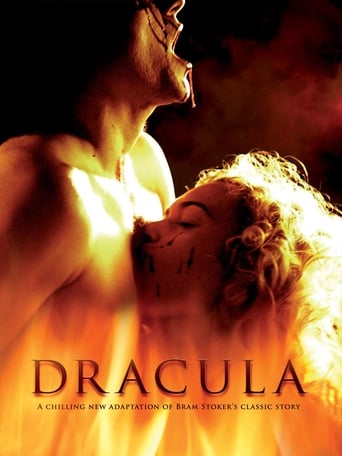


I gave it a 7.5 out of 10
... View MoreCharming and brutal
... View MoreAbsolutely amazing
... View MoreThis movie was so-so. It had it's moments, but wasn't the greatest.
... View MoreAs seems to be an iron clad law with all Dracula adaptations , liberties are taken with the story that result in it being yet another abomination.The main thrust of the story is Arthur holmwood and his attempts at curing his inherited syphilis, utilising a strange blood cult and tricking Jonathan Harker into going to Transylvania knowing who he will find there??any of this sound familiar? no? because its nothing to do with the book at all. The actor playing Dr Seward in particular is incredibly bad. They don't even bother to hide his cockney accent or even consider how unlikely and unbelievable it would be to have a late Victorian era doctor with a working class London accent. This is all forgotten of course when you realise he cannot act.A Dracula too young to play the role, and an accent that you cannot understand is the icing on this cake of awfulness. I don't know about Draculabut I'm sure Bram Stoker is turning in his grave
... View MoreThe umpteenth in a long line of screen adaptations of Bram Stoker's iconic literary creation the BBC's 2006 production has the dubious distinction of a unorthodox casting in "Hustle's" Marc Warren as the vampiric Count while diverting more so from Stoker's classic novel than previous versions.This version sees young English estate agent, Jonathan Harker journeying to Transylvania to finalise the sale of a property being bought by the aged Count Dracula. Little does he realise and all of us are more than aware, the Count is a vampire and upon learning this, Jonathan is murdered by Dracula. Meanwhile back in England , Jonathan's fiancé, Mina Murray is celebrating the imminent nuptials of her best friend Lucy Westernra to Lord Arthur Holmwood. However, unknown to Lucy her husband to be has contracted syphilis, a disease that was passed on to him by his father before his birth and is therefore unable to consummate their marriage. In the vain hope of ridding himself of the fatal illness he enlists the services of Dracula who he has been told can rid him of the affliction and aided him to secure the purchase of Carfax Abbey as a residence in London. But the Count has his own agenda and with the help of a cult who worship him, he plots to make London his own personal feeding ground. It is only the sage knowledge of Dutch professor, Abraham Van Helsing that can put a stop to Dracula's plans. The BBC has a distinguished history, particularly when it comes to costume drama's and while it's beautiful to look at and the scenes in Transylvania are brought brilliantly to life, this latest adaptation is incredibly misjudged, hollow and ultimately unfulfilling. The problem primarily is with the unnecessary alterations made to the films source material. The whole angle revolving around Arthur's affliction only serves to add the ridiculous and terribly misconceived notion that Dracula is the figure of worship, a clear attempt by the films writers to do something original and inventive with the story which only manages to be tawdry. The actors struggle to bring any credibility to the sorry affair with Warren chiefly miscast as the titular Count, lacking any commanding presence that former Dracula's (Christopher Lee springs to mind) had in abundance. While impressive in earlier scenes where the Count is elderly, his later scenes are woeful. Warren stares fixedly at his co-stars clearly attempting to provoke chills and merely provokes indifference. Only David Suchet comes out of the whole farrago with any dignity in tact as Van Helsing. More depressing than scary and only running in at an hour and a half in length "Dracula" is a dull inspired mess as is the rest of the acting. It's hard to really care about any of the characters least of all Arthur who is partially responsible for bringing Dracula to London while Warren preying on Sophia Myles Lucy in the bedroom scenes, obviously an attempt to recreate the sexiness of Francis Ford Coppola's "Bram Stoker's Dracula" just comes across as flat and unappealing. If you want to see a good adaptation of Bram Stoker's novel then don't bother with this one, the hammy bygone days of the old Hammer Horror films were more enjoyable than this fluff.
... View Morewhile i can't say whether this adaption of the Dracula myth is true to Bram Stoker's novel,(since i haven't read it)i still liked it.i liked the look of Dracula as an old man and as the young man.i also really liked the almost unrecognizable David(Poirot)Suchet as Abraham Van Helsing.i don't think i've ever seen an episode of Masterpiece theatre,but i think they did a fine job with the Dracula lore.Marc Warren was good as the count and i could see how the character could be seductive to women. i liked the look of the film.it is certainly beautifully photographed.i think this is the most romanticized version of Dracula i've seen so far.it's just as good as any of the others i have seen.i give this version of "Dracula" 8/10
... View MoreThe problem with making a film out of "Dracula" is that the book was pretty good to start with. Cinematically written, with well-measured pace changes, atmospheric description, three-dimensional characters and grand settings and vistas, it should transcribe perfectly to the screen. And, given the BBC's skill with period pieces and adaptations of classics (I mean, look at Pride and Prejudice), it should have transcribed perfectly. As far as I can see, the best explanation for its failure is that the creators didn't actually bother to read the book.Written in large letters on the BBC's "Dracula" website are the words "Returning to the original novel for his inspiration, Stewart Harcourt's script draws both on elements of Bram Stoker's own life and Victorian society to give this version of the vampire classic a new, modern sensibility." Nice sentiment, but complete drivel. Harcourt seems instead to believe that throwing in trivial details from the original text (Dracula's "youthening", the Count's ability to walk in sunlight) grants him licence to ignore the original plot. It doesn't. The film begins decently enough (the first of the many syphilis references notwithstanding - I'll get to those later), but Jonathan Harker's death early on is more than enough to give the lie to the BBC's grand statement on its website.And the syphilis. It seems to be the bounden duty of every pseudo-intellectual Dracula reader to insist that Bram Stoker was himself suffering from the disease when he wrote the book. In this adaptation that little shred of a hypothesis is blown up to cosmic proportions, and, while it's a nice way of saying "look at how educated we are", it doesn't stand up to the inflation, and it just doesn't work to hang an entire plot on it. Besides that, the simple fact of the matter is that Bram Stoker never did contract syphilis*, so the attempt at intellectualism is wasted.It's okay to change plots if you have to. Disney does it to make classic stories more child- friendly. The National Theatre did it to make Northern Lights more adaptable to the stage. But to rip a classic and originally compelling story to shreds, piece it back together in the wrong order like some gross literary Frankenstein's monster, and then claim that the adaptation returns to the material of the original book...well, frankly that's just false advertising.*The claim that Bram Stoker suffered from syphilis is based on the assertion of a single biographer that he died of "locomotor ataxy", a disease which, while occasionally associated with syphilis, has never been conclusively shown to be the same thing. Locomotor ataxy was certainly not recognised as an STD, which renders conclusively useless any theories that Stoker wrote Dracula as a commentary on syphilis and its associations with promiscuity or sexual deviance.
... View More